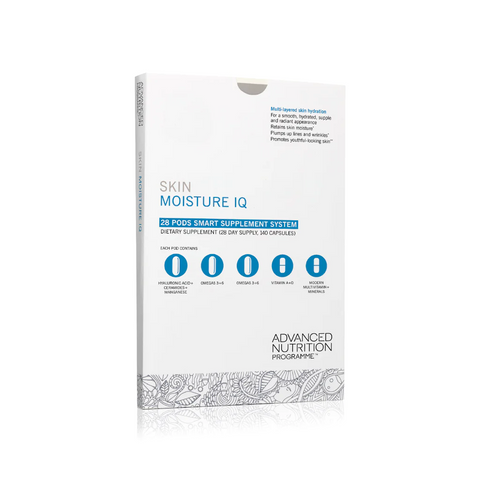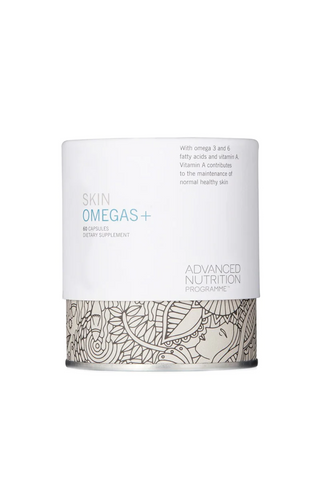This can be caused by a host of internal and external factors, including lifestyle,diet, seasonal changes, and UV exposure, as well as an inconsistent skincare and supplement routine. But beyond the basics of moisturising and drinking water, how do you actually keep your skin hydrated all year-round? And why is it so important? From consuming Vitamin C levels to including Omegas, scroll for our skin experts’ top tips to keeping your skin hydrated throughout the summer and beyond.
Why is it important to keep your skin hydrated?
No matter your skin type or concern, hydration is key for overall skin health. Your complexion needs hydration in the same way your body does. Not only does it keep your skin looking radiant and nourished from the outside, but hydration also plays a crucial role in your overall skin function too, helping protect the layers of skin and support your skin’s defences.
That means that if your skin is hydrated it’s better equipped to defend against environmental aggressors like pollution and sunlight. Similarly, while the immediate result of hydration is a plumped, healthy-looking complexion, healthy skin cells also help flush out toxins which can often cause dull-looking skin.
Dehydrated skin, on the other hand, means your skin is lacking in water – a result which can cause dryness, itchiness, and dull-looking skin. These tell-tale signs of a dehydrated complexion can also make fine lines or wrinkles look more visible.
4 ways to keep your skin hydrated
- Consume omega 3 and 6 fatty acids to support hydration and relieve, dry and itchy skin. Omegas 3 and 6 help also help support skin barrier function, sealing in moisture and keeping unwanted irritants out.
- Consume foods rich in vitamin C, found in fruits like oranges, blackcurrants and strawberries as well as vegetables like broccoli and potatoes, as this can help decrease symptoms of redness and itchiness.
- Vitamin D levels to help support the epidermal barrier by regulating cell division and help balancing skin immunity**.
- Keeping skin hydrated by drinking sufficient water is a no-brainer, but make sure you pace your water intake throughout the day instead of drinking vast amounts sporadically. This helps keep your skin and body consistently hydrated.
Supplements to support hydrated-looking skin
SKIN MOISTURE IQ
This smart, science-led supplement system features five capsules (including two skin-loving Skin Omegas+, one Skin Moisture Lock, Skin Vit A+ and Skin Vitality) to help skin radiance and support a more hydrated-looking skin. It’s recommended to those with dry and dehydrated skin or compromised skin barriers.

SKIN OMEGAS+
Think of this like an internal moisturiser for your skin. Featuring omega 3, 6 and vitamin A, this skin-glowing formula is recommended for overall skin health* and those with dry or dehydrated skin.
All in all, if you do feel like your skin often feels dehydrated, adopt a routine that looks at skin health from the inside with supplements, hydrating ingredients like hyaluronic acid, ceramides, vitamin C and a diet that incorporates omega fatty acids to achieve hydrated-looking, smooth skin.

*Vitamin A contributes to the normal maintenance of skin
** Vit D contributes to the normal function of the immune system

